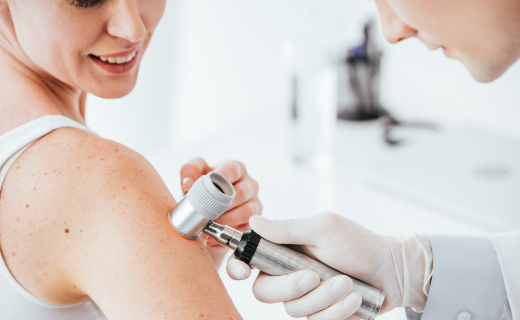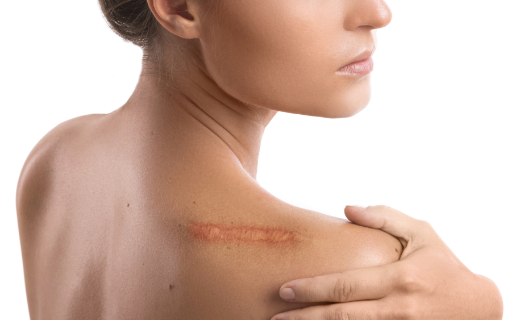
Biologics are biotechnologically produced drugs that are gaining importance in healthcare because…

The lips are a central feature of the face and require specialized care due to their unique skin structure. What is the best care for lips?
How does the skin of the lips differ from the skin covering the rest of our bodies?
Anatomically, we differentiate between an upper and lower lip. The darker, pigmented portion is the red aspect of the lip, also known as the vermillion. The surrounding skin is the white aspect of the lip.
Due to the lack of a protective keratinized layer, the skin of the lips is exquisitely sensitive. It is made up of a minimally keratinized squamous epithelium which seamlessly transitions into the mucosa of the oral cavity.
Since there are neither hair follicles nor sweat or sebaceous glands, the lips are unable to produce a protective hydrolipid film. As a result, the skin of the lips dries out quickly and is more sensitive to changes in temperature. Especially temperature extremes, such as the cold of winter or the heat of summer, take a toll on the lips.
The lips also possess very few melanocytes. Melanocytes are cells that are found in the skin and produce melanin, a substance that gives the skin its color and protects it from UV rays. As a consequence, the lips are also more susceptible to sunburn, even during winter activities such as skiing.
Since the lips lack the intrinsic protection offered by skin in other areas of the body, proper lip care should try to emulate the missing hydrolipid film. Our lips are in constant action, whether it’s during speaking, eating, or facial expression.
And although the tongue periodically naturally moisturizes the lips, saliva dries out rapidly and thereby provides only temporary relief to dry lips.
Taken to an extreme, dry lips can progress to profound inflammation of both the red and white aspects of the lip, a condition known in dermatology as “cheilitis sicca.” This condition is characterized by dry, painful lips, with redness, flaking, and cracking of the skin.
Conditions such as atopic dermatitis, diseases of the thyroid gland, cold sores, or nutritional insufficiency such as zinc deficiency can also cause dry lips.
First and foremost, lips need special care, which means that regular facial creams should not be applied to the lips. Since products applied to the lips can easily enter the oral cavity and be systematically absorbed, lip care products should be composed of natural ingredients.
Examples of such include natural oils and fat-soluble vitamins. Especially in summer, when the amount of UV radiation is at its highest, lip care products should include a sun protection factor (SPF).
Good lip care contains plenty of fats. Suitable substances include natural products like shea butter (1). Another excellent natural product is cocoa butter, as it too contains many valuable fats which mimic natural those produced by our bodies and therefore keep the lips smooth and supple (2).
Several studies show that the topical application of virgin coconut oil has anti-inflammatory activity by inhibiting the various levels of cytokines (small proteins that are important in cell signaling) including TNF-α, IFNγ, IL-6, IL-5, and IL-8, thus improving skin barrier function as well as protecting against ultraviolet-B radiation (3).

Biologics are biotechnologically produced drugs that are gaining importance in healthcare because…

Botox Behandlungen richtig abrechnen
Botox® boomt! Immer mehr Menschen lassen mit Hilfe von Botulinumtoxin und Derma-Fillern ästhetische Behandlungen durchführen. Zur richtigen Abrechnung…

Botulinum toxin injections against the appearance of scars
Pathological scarring can be reduced by injecting botulinum toxin A, according to the latest studies. The effect of improving…


Erfahre als Erster von Neuigkeiten in der ästhetischen Medizin und profitiere von exklusiven Angeboten sowie Tipps von unseren erfahrenen Dozenten.

We will call you back soon